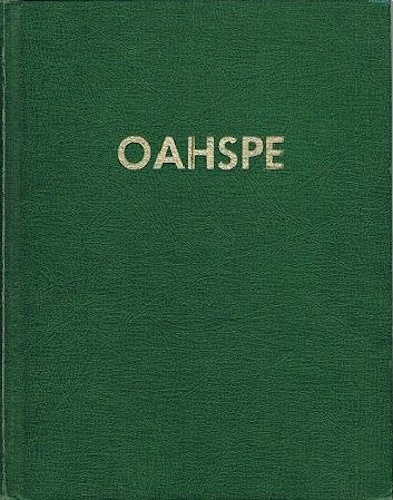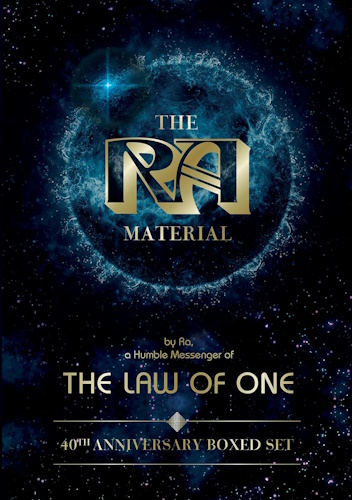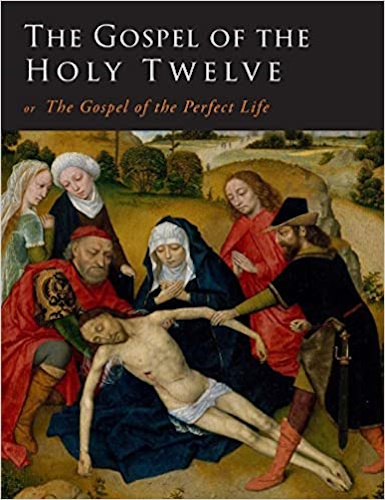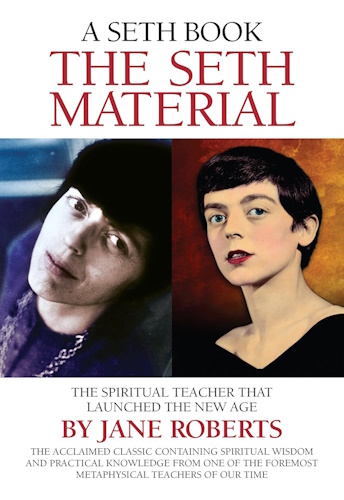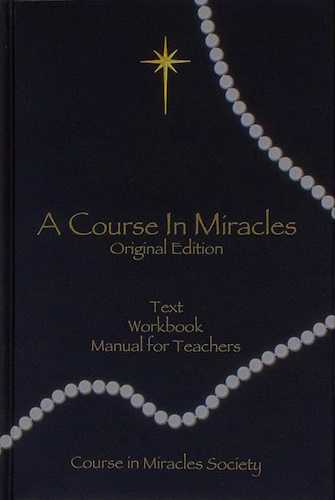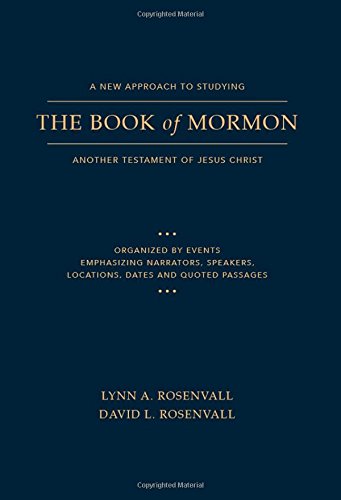
![]()
![]()
Book of the Arc of Bon
Chapter V
1. FOR forty days Capilya remained in Maksabi, teaching and helping the people; and on the fortieth day he said unto them: I go now; the Father desireth
p. 469b
me. Be ye faithful unto Jehovih, and maintain the sacrifices (worship). The eye of Jehovih is upon you; His ear heareth not only your spoken words; but the thoughts in your hearts. In time after this I will come again unto you, and restore your rites and ceremonies.
2. Jehovih said unto Capilya: Even as thou hast done in Hosagoweth, so shalt thou do in Tibethkilrath; for thither will I also bring My chosen from the Province of Yusitra.
3. So Capilya went to Tibethkilrath, where were assembled more than seven hundred Faithists; and they feared him, saying to one another: Is this not some one sent of the king to entrap us?
4. But when Capilya beheld they feared him, he said unto them: He who hath faith in Ormazd feareth nothing in heaven or earth. For the Father appointeth a time unto all peoples; nor can they make it more or less. Throtona, one of the rab'bahs, said unto Capilya: Art thou indeed one of us? Capilya said: Because I am as I am, I cannot answer thee. If I say I am of thy race, then will not thy people be restored to liberty; for I would suffer death, being a teacher of thy people. If I say I am not of thy race, then thy people will not have faith in me.
5. I say unto thee, I am but a man, even as thou art; neither am I pure and good; for there is but One pure, the Creator. Therefore, put thy faith in Jehovih, and wherein my words and labors are good, render unto me even as to any other man, nor more nor less. And yet, even as thou believest in the Ever Present, so do I; as thou believest not in a man-God, so do not I.
6. Are not all men brothers, and created by the same Spirit? Because the kings acknowledge not this doctrine, they persecute and outlaw thy race. To restore thy people, who are my people also, am I sent into the world. My labor is now upon me; and for that purpose am I here with thee and thy people.
7. This land, around about, I bequeath unto the Faithists; and they shall settle here and till the soil, and reap the harvests, and shall not be driven away. And in time to come I will provide teachers, and the Faithists shall have the right to obtain knowledge.
p. 470b
8. Capilya built altars for the multitude, saying to them: First of all, thou shalt dedicate to God all things thou puttest thy hands to, for without the rites of bestowal upon the Great Spirit, thy people cannot be in harmony. To neglect the rites is to neglect all things. Know ye the doctrines of the ancients?
9. None of the rab'bahs could answer Capilya, and so he said: Ormazd provided your servant with great learning. For this am I sent to you. Know ye, then, the doctrines of the ancients, even from the time of Zarathustra and Brahma:
10. To rise with the sun; to bathe the body once every day; to eat no flesh nor fish; to pray to Ormazd at sunrise, at high noon, at sunset, and before laying down to sleep.
11. Certain philosophers, wise in vanity, said: To rise an hour after the sun is no sin; to bathe one day in seven is sufficient; to eat fish-flesh, which is of cold blood, is no sin. Now, behold, it came to pass that they laid in bed two hours; they ceased to bathe altogether, and as to eating, they halted not with fish-flesh, but ate of all flesh. And sin came upon them; by their behavior they cut themselves off from the Father.
12. Be ye scrupulous in following the texts; and as to him that openeth the door for disobedience, have nothing to do with him or his philosophy.
13. Capilya asked: Why doeth one man a good act rather than a bad act? Why doeth another man a bad act rather than a good one? The rab'bahs said: The first is the speech of Ormazd; the second is the speech of satan; for as these dwell in men, so do they manifest.
14. Capilya said: I am pleased with the answer; for which reason I have before commanded you to build altars and do sacrifice; for these are the expressions of your souls, which testify ye rather would serve the Creator than the destroyer.
15. This was also of the ancient doctrines of Zarathustra; but certain other philosophers, vain in self-knowledge, said: Can not a man worship in the soul, and without building an altar of stone and wood? And the multitude harkened unto them; and they afterward went further, and said: Why worship at all? So, they fell in darkness. A soul without an outward expression of worship standeth on the brink of hell.
p. 471b
16. To see an altar, as we pass along, enforceth upon us the thought of worship, and of Ormazd, the Creator; it leadeth the soul upward. To see evil, or the temptation of it, is to lead the soul toward darkness. Therefore, let men and women be discreet of their persons; but make the altars of sacrifice numerous.
17. Capilya asked: What is the first poison? The rab'bahs knew not how to answer, perceiving Capilya had great learning and wisdom. Capilya said: The first poison is self. One man saith: Rites and prayers are good for the stupid and unlearned; I need them not. I say unto you that that man is drunk on the first poison; let not his breath breathe upon you; for here entereth the wedge of destruction.
18. Capilya said: What is the second poison? But when he perceived none would answer, he said: The first leadeth to the second, which is desire to lead others and rule over them. Htah-ai, one of the rab'bahs, asked: How can we get on without leaders?
19. Capilya said: Suffer no man to lead you; good men are expressions of the All Light. Capilya asked: What is the best and yet the most dangerous thing? Some replied as to one thing, and some as to another. Capilya said: The best and yet most dangerous thing is speech. To talk of good things; of delights; of love; of Ormazd and his wonderful creations; of life and death; of everlasting happiness; these are good speech and give the soul great happiness. To talk of evil; of dark deeds; of one's neighbors; of disgusting things and words; these enrich satan's harvest.
20. Certain three men traveled through a great city, and when they returned home, and the neighbors assembled to hear the story of their travels, one of the travelers related all that he saw, good and bad; another one related only all the bad things he saw; and the other one related only the good things he saw, the delights and most beautiful things. Which, now, of the three, say ye doeth most for the Father's kingdom? The rab'bahs said: The last one. Capilya said: True! Be ye, then, like him even to one another; for by this course only is speech not dangerous, but of profit unto the world.
21. Sufficient is the number of evil men to relate the evils in the world; relate ye the good, for by constantly
p. 472b
walking in clean ground ye shall remain clean, in word and deed.
22. Search ye both spirits and men, not for the brilliancy of speech, for oft its brilliancy hideth its poison, or stealeth on the senses unawares; but search their words as to holy ideas and good delights, to make man rejoice in his life. He who harpeth on deceivers and liars and debauchees, is a fireman for satan's hells. Reply not to him, lest your speech become a snare to entrap yourselves.
-
Urantia Book, 44:0.11 - The Celestial Artisans
Never in your long ascendancy will you lose the power to recognize your associates of former existences. Always, as you ascend inward in the scale of life, will you retain the ability to recognize and fraternize with the fellow beings of your previous and lower levels of experience. Each new translation or resurrection will add one more group of spirit beings to your vision range without in the least depriving you of the ability to recognize your friends and fellows of former estates.
-
Princess Bride 1987 Wallace Shawn (Vizzini) and Mandy Patinkin (Inigo Montoya)
Vizzini: HE DIDN'T FALL? INCONCEIVABLE.
Inigo Montoya: You keep using that word. I do not think it means what you think it means. -
Urantia Book, 117:4.14 - The Finite God
And here is mystery: The more closely man approaches God through love, the greater the reality -- actuality -- of that man. The more man withdraws from God, the more nearly he approaches nonreality -- cessation of existence. When man consecrates his will to the doing of the Father's will, when man gives God all that he has, then does God make that man more than he is.
-
Urantia Book, 167:7.4 - The Talk About Angels
"And do you not remember that I said to you once before that, if you had your spiritual eyes anointed, you would then see the heavens opened and behold the angels of God ascending and descending? It is by the ministry of the angels that one world may be kept in touch with other worlds, for have I not repeatedly told you that I have other sheep not of this fold?"
-
Urantia Book, Foreword - 0:12.12 - The Trinities
But we know that there dwells within the human mind a fragment of God, and that there sojourns with the human soul the Spirit of Truth; and we further know that these spirit forces conspire to enable material man to grasp the reality of spiritual values and to comprehend the philosophy of universe meanings. But even more certainly we know that these spirits of the Divine Presence are able to assist man in the spiritual appropriation of all truth contributory to the enhancement of the ever-progressing reality of personal religious experience—God-consciousness.
-
Urantia Book, 1:4.3 - The Mystery Of God
When you are through down here, when your course has been run in temporary form on earth, when your trial trip in the flesh is finished, when the dust that composes the mortal tabernacle "returns to the earth whence it came"; then, it is revealed, the indwelling "Spirit shall return to God who gave it." There sojourns within each moral being of this planet a fragment of God, a part and parcel of divinity. It is not yet yours by right of possession, but it is designedly intended to be one with you if you survive the mortal existence.
-
Urantia Book, 1:4.1 - The Mystery Of God
And the greatest of all the unfathomable mysteries of God is the phenomenon of the divine indwelling of mortal minds. The manner in which the Universal Father sojourns with the creatures of time is the most profound of all universe mysteries; the divine presence in the mind of man is the mystery of mysteries.
-
Urantia Book, 1:4.6 - The Mystery Of God
To every spirit being and to every mortal creature in every sphere and on every world of the universe of universes, the Universal Father reveals all of his gracious and divine self that can be discerned or comprehended by such spirit beings and by such mortal creatures. God is no respecter of persons, either spiritual or material. The divine presence which any child of the universe enjoys at any given moment is limited only by the capacity of such a creature to receive and to discern the spirit actualities of the supermaterial world.
-
Urantia Book, 11:0.1 - The Eternal Isle Of Paradise
Paradise is the eternal center of the universe of universes and the abiding place of the Universal Father, the Eternal Son, the Infinite Spirit, and their divine co-ordinates and associates. This central Isle is the most gigantic organized body of cosmic reality in all the master universe. Paradise is a material sphere as well as a spiritual abode. All of the intelligent creation of the Universal Father is domiciled on material abodes; hence must the absolute controlling center also be material, literal. And again it should be reiterated that spirit things and spiritual beings are real.
-
Urantia Book, 50:6.4 - Planetary Culture
Culture presupposes quality of mind; culture cannot be enhanced unless mind is elevated. Superior intellect will seek a noble culture and find some way to attain such a goal. Inferior minds will spurn the highest culture even when presented to them ready-made.
-
Urantia Book, 54:1.6 - True And False Liberty
True liberty is the associate of genuine self-respect; false liberty is the consort of self-admiration. True liberty is the fruit of self-control; false liberty, the assumption of self-assertion. Self-control leads to altruistic service; self-admiration tends towards the exploitation of others for the selfish aggrandizement of such a mistaken individual as is willing to sacrifice righteous attainment for the sake of possessing unjust power over his fellow beings.
-
Urantia Book, 54:1.9 - True And False Liberty
How dare the self-willed creature encroach upon the rights of his fellows in the name of personal liberty when the Supreme Rulers of the universe stand back in merciful respect for these prerogatives of will and potentials of personality! No being, in the exercise of his supposed personal liberty, has a right to deprive any other being of those privileges of existence conferred by the Creators and duly respected by all their loyal associates, subordinates, and subjects.
-
Urantia Book, 54:1.8 - True And False Liberty
There is no error greater than that species of self-deception which leads intelligent beings to crave the exercise of power over other beings for the purpose of depriving these persons of their natural liberties. The golden rule of human fairness cries out against all such fraud, unfairness, selfishness, and unrighteousness.
